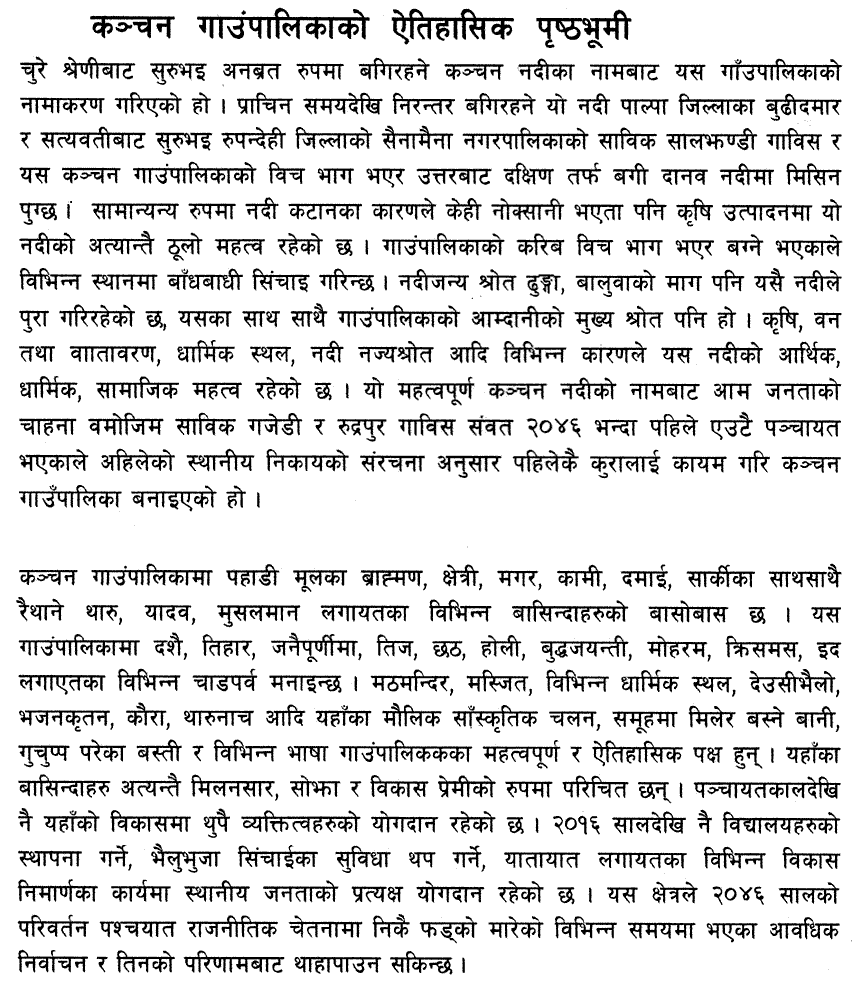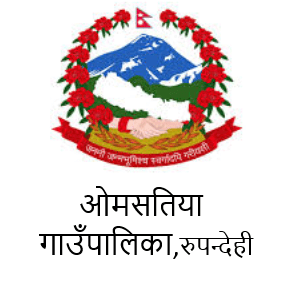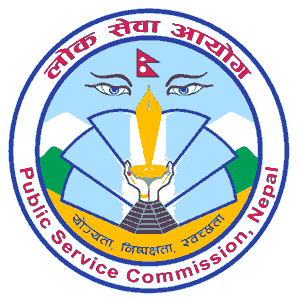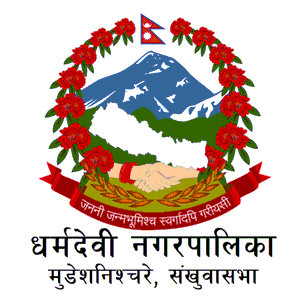Overview
The Kanchan Rural Municipality (Kanchan Gaupalika) is named after the Kanchan River, which originates from the Chure Range and flows continuously. This river starts from Budhidamar and Satyawati in the Palpa district, flows through the former Saljhundi VDC of Sainamaina Municipality in Rupandehi district, and passes through the middle of this Kanchan Rural Municipality from north to south before joining the Danav River.
Although this river sometimes causes minor damage due to river cutting, it plays a very significant role in agricultural production. As it flows through the middle of the rural municipality, various locations use it for irrigation by constructing dams. The river also fulfills the demand for stone and sand, and it serves as the primary source of income for the rural municipality.
The river holds economic, religious, and social importance due to its contributions to agriculture, forest and environment, religious sites, and river resources. In line with the desires of the general public, and considering that the former Gajedi and Rudrapur VDCs were one Panchayat before 2046 BS, the current local structure has been maintained to form Kanchan Rural Municipality.
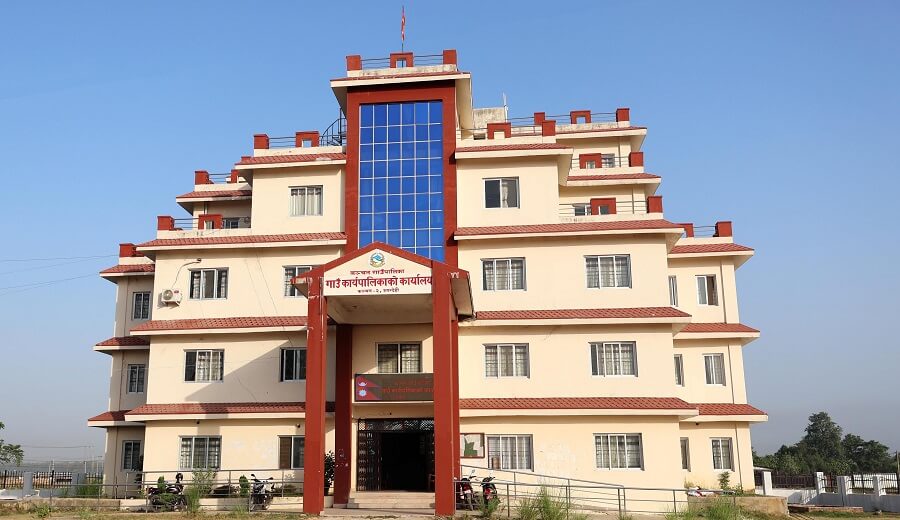
Kanchan Rural Municipality is home to various ethnic groups, including Brahmin, Chhetri, Magar, Kami, Damai, Sarki, Tharu, Yadav, Muslim, and others. Various festivals such as Dashain, Tihar, Janai Purnima, Teej, Chhath, Holi, Buddha Jayanti, Moharram, Christmas, Eid, and more are celebrated here.
Temples, mosques, various religious sites, traditional cultural practices like Deusi Bhailo, Bhajan Kritan, Kaura, and Tharu dance, along with communal living habits, clustered settlements, and multiple languages, form the important and historical aspects of the rural municipality.
The residents here are known for being extremely friendly, straightforward, and development-oriented. Many personalities have contributed to the development of this area since the Panchayat era.
The local people have directly contributed to various developmental activities, such as establishing schools since 2016 BS, expanding the Bhailubhuja irrigation facility, and improving transportation. The region has made significant strides in political awareness, which can be observed from the periodic elections and their outcomes since the change in 2046 BS.
Kanchan Rural Municipality Overview:
Kanchan Rural Municipality, formed by merging the former Gajedi and Rudrapur VDCs, is one of the 10 rural municipalities in Rupandehi district under Lumbini Pradesh. Located approximately 1 km south of Bansgadhi along the East-West Highway, it is positioned at 83.270353° E longitude and 27.642291° N latitude, at an altitude of approximately 92.1 meters above sea level. Covering an area of 58.51 square kilometers, this rural municipality falls under the House of Representatives Constituency 5 of Rupandehi district. It is bordered by Sainamaina Municipality to the north, Gaidahawa Rural Municipality to the east, Kapilvastu district to the west, and Sainamaina Municipality to the northeast, with Gaidahawa Rural Municipality to the southeast. The Kanchan River flows through the middle of the rural municipality from north to south, adding to the natural, geographical, cultural, and scenic beauty of the area. This rural municipality, which is open-defecation free, fully vaccinated, and fully literate, features dense forests in the northwest and some bushes, with other areas being suitable for cultivation. According to the National Census 2078 BS, there are 10,440 households in this rural municipality, comprising 23,120 women (54.4%) and 19,408 men (45.6%), with a total population of 42,528. The literacy rate for men is 89.8%, and for women, it is 77.6%, with an overall literacy rate of 83%.
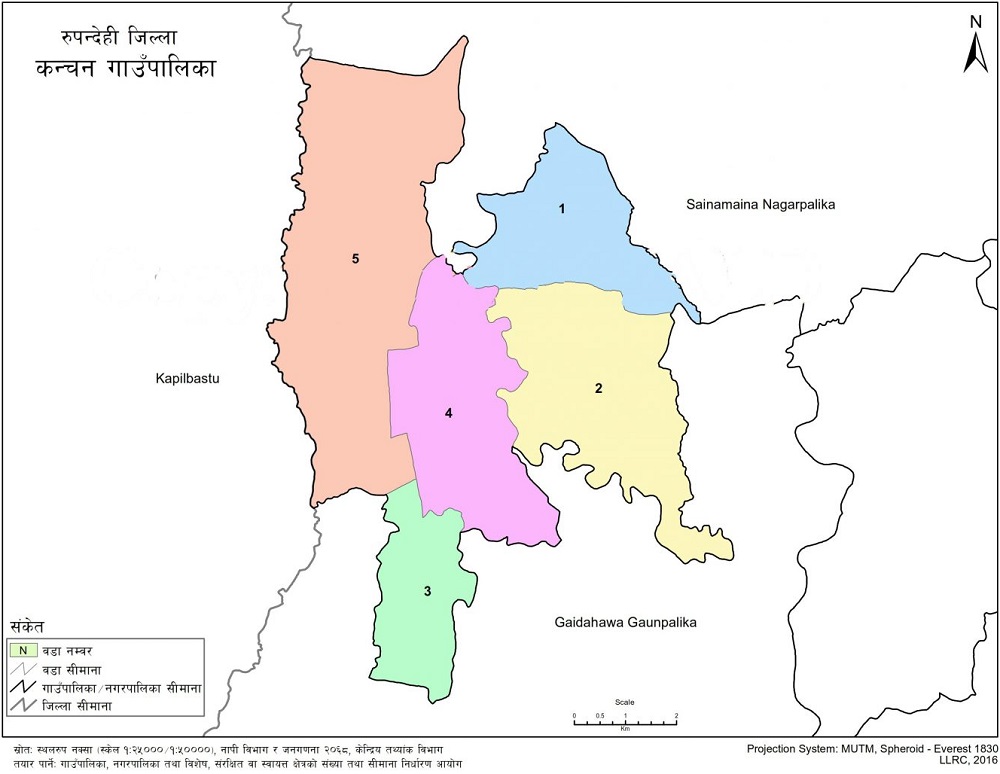
The Office of the Rural Municipal Executive of the Kanchan Rural Municipality (Kanchan Gaupalika) is located at Kanchan, Rupandehi, Lumbini Pradesh of Nepal. Kanchan Rural Municipality is an autonomous (self-government) local government of Nepal, incorporated in 2017 AD and divided into 10 wards office.
Kanchan Rural Municipality provides various local-level public services such as road construction, water supply, local development projects, healthcare services, electricity, optimal utilization of local resources, education, agriculture, transportation, environmental protection, infrastructure development, tax collection, urban planning, local administrative service, social security, communication service, forestry, land registration, sanitation, social welfare distribution, and birth and death registration.
